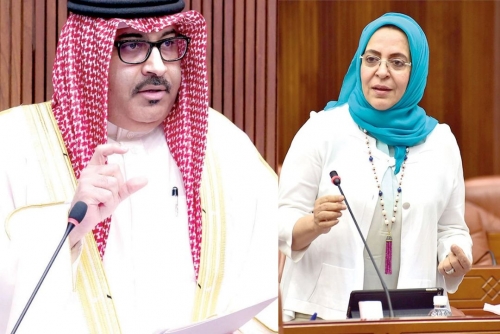The Minister of Education in Bahrain, Dr. Mohammed Juma, recently announced a 16:1 student-teacher ratio for the upcoming 2023-2024 academic year. However, this ratio increases to approximately 30:1 in private schools, which is almost a 50% jump from the average in public schools. This information was disclosed in response to a parliamentary inquiry by Shura Council member Dr. Fatima Abduljabbar Al Kooheji.
Dr. Juma mentioned that the ministry is aiming to further enhance the student-teacher ratio, with a goal of 14 students per teacher in primary schools, as per the approval of the Cabinet. He also highlighted a specific strategy in place to manage student numbers in conjunction with administrative staff, taking into account factors like school size, student population, and educational phase. Additionally, he mentioned that the ministry employs one social supervisor for every 250 students in order to provide additional support.
The Minister also emphasized the integration of artificial intelligence (AI) into the primary school curriculum. AI technologies are being incorporated into lessons to improve student skills and capabilities, in line with the national curriculum framework. The initiative includes teaching programming skills from the first grade, and integrating AI into subjects such as information technology, communication, science, mathematics, design, technology, Arabic, English, social studies, Islamic education, and civic education. The curriculum also includes virtual reality, 3D design, and advanced software to equip students with practical digital skills.
This strategic move reflects Bahrain’s commitment to embracing technology in education and preparing students for the digital age. By incorporating AI into the curriculum, students will develop essential skills that will better prepare them for future job opportunities in a technology-driven world. The focus on digital skills and technology integration will bridge the gap between traditional educational practices and the demands of the modern workforce, ensuring that Bahrain’s students are well-equipped to compete globally.
By emphasizing a balanced student-teacher ratio, the Ministry of Education is striving to provide quality education to all students, regardless of whether they attend public or private schools. This commitment to improving the learning environment and incorporating innovative teaching methods will contribute to the overall development and success of Bahrain’s education system. The Ministry’s proactive approach to integrating AI into the curriculum demonstrates a willingness to adapt to changing educational needs and equip students with the skills they need to thrive in the future.
In conclusion, Bahrain’s Ministry of Education’s focus on enhancing the student-teacher ratio, integrating AI into the curriculum, and providing a supportive learning environment underscores the country’s commitment to fostering a high-quality education system. By investing in technology, utilizing innovative teaching methods, and prioritizing student well-being, Bahrain is poised to prepare its students for success in an increasingly digital world. With a strategic vision for the future of education, Bahrain is taking significant steps to ensure that its students are well-prepared for the challenges and opportunities of the 21st century.











